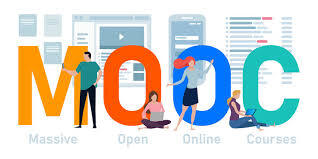Summer blog - AI MOOC for Social Professionals [EN]
04.07.2024
During the summer, the Knowledge Centre Data & Society offers a platform for partner organisations. This week, Robbe Vanthuyne from VIVES University of Applied Sciences shares insights into the AI MOOC for social professionals that he and his team are currently developing.
Are you ready to revolutionize your work in social services with the power of Artificial Intelligence (AI)? VIVES University of Applied Sciences is excited to announce the launch of our first Massive Open Online Course (MOOC) in February 2025. Our MOOC will cover the use of AI specifically tailored for social professionals.
In the last few years, we have seen a tremendous rise in the popularity of AI, transforming industries from finance to healthcare. The progress made in this field is making AI an integral part of modern society. Hence, AI is not just a tool for the tech industry; it has made its way outside the realm of technology to all domains in society, including the field of social services. This results in the possibility of AI becoming an ally for social professionals working to build a just society. From individual client support to policy development, AI has the potential to revolutionize how we approach the social sector, making our efforts more coherent, impactful, and inclusive.

For the past four months, our team, consisting of social professionals and experts in fields such as AI, care technology, and ethics, has been developing this course. The course will equip worldwide social professionals with the knowledge and skills to leverage AI to enhance their work, driving social change, and fostering inclusivity. Our MOOC will provide a flexible way to learn new skills concerning AI in social services.
What to expect from our MOOC?
Our MOOC focuses on two main objectives: First, we aim to teach how social professionals can effectively incorporate AI techniques into their daily work routines, leading to the emancipation of vulnerable individuals and communities within society. Second, we will demonstrate how AI can help reduce the workload of social professionals by automating repetitive tasks, allowing professionals to focus on more meaningful interactions with clients.
The AI tools displayed in our MOOC will be twofold. On the one hand, we will illustrate how social professionals can use readily available AI tools that do not require any previous expertise/programming or coding, on the other hand we will show how social professionals can work together with data scientists, AI engineers and researchers to build AI models specifically tailored to their organization. Both use cases will be illustrated with the help of concrete (real-world) examples.

With the help of an illustration of a fictional social organization, we will show how AI tools can be used at different levels of the organization, ranging from the micro to the macro level. This includes individual client support, case management, community engagement, policy development/evaluation/influence, and internal team management.
Course set-up
The MOOC will consist of a total of 7 modules. After going through the first introductory module, the following 6 modules will each follow a different person working for the organization performing a different role. Through these diverse characters in different roles, we will illustrate practical examples of how AI can be used to address everyday challenges for social professionals. These practical examples include implementing chatbots equipped with a knowledge base in social organizations, using AI to guide clients through the complex process of filling out application forms, facilitating communication with external partners, and many more applications.
The course will be equipped with many interactive and entertaining features, such as quizzes, videos, discussions, peer-graded assignments, and many more. Next, there will be an option for social professionals to engage in open discussions with each other after every module. Our goal is to encourage community building among social professionals, enabling them to share knowledge and insights on the use of AI in their specific fields. This approach allows us to engage with our learners and use their feedback to update and improve the MOOC continuously.
What about the ethical challenges?
For every AI application discussed, we will explore the ethical implications, ensuring that social professionals understand how to use AI responsibly, drawing on a universal human rights framework and key values such as transparency, explainability, accountability, human oversight, privacy, data protection, and non-discrimination. Additionally, we will connect the specific use cases to international guidelines on AI in social services, and judicial frameworks from international institutions. This approach ensures that social professionals use AI responsibly, prioritizing human needs, values, and capabilities.
Join our MOOC and community!
The launch of VIVES University of Applied Sciences' first MOOC on AI for social professionals marks a significant step towards empowering actors within the social sector with the tools and knowledge needed to use the potential of AI effectively. As we anticipate the launch of our MOOC at the beginning of 2025, we look forward to welcoming you! In September 2024 it will be disclosed on which platform the MOOC will be published.
Additionally, since we are still looking for real life use cases to implement in our MOOC, if you have practical AI use-cases for social services to share, reach out to us at robbe.vanthuyne@vives.be. Your insights can help shape the future of AI in social services.
Auteur
The Knowledge Centre is not responsible for the content of the blog posts that appear in our 'Summer' blog series and therefore will not correspond about the content. In case of questions, comments or concerns: contact the author(s)!
